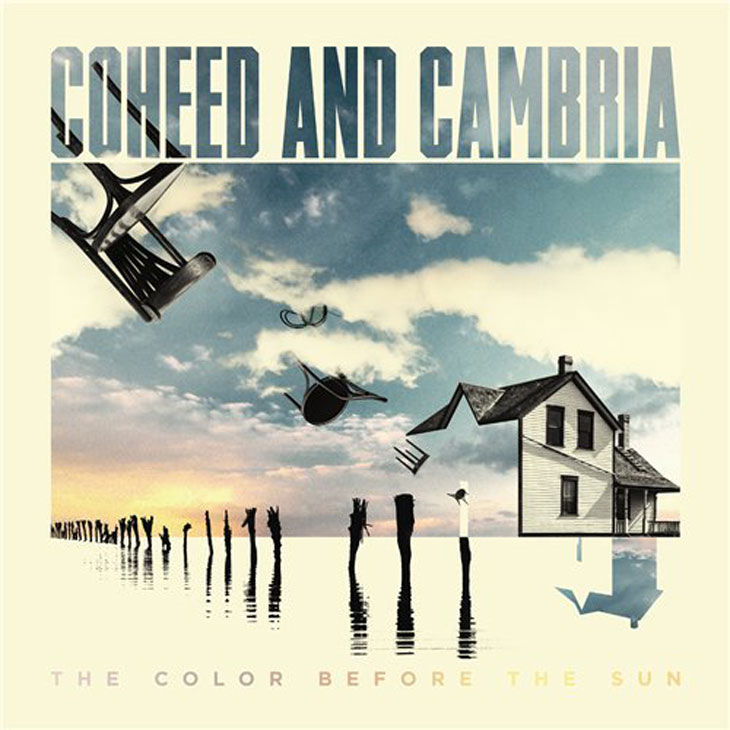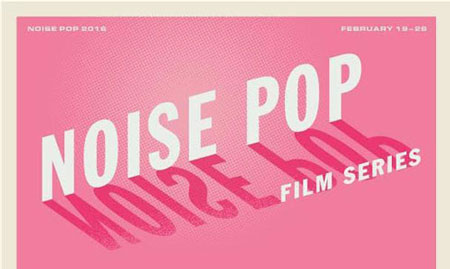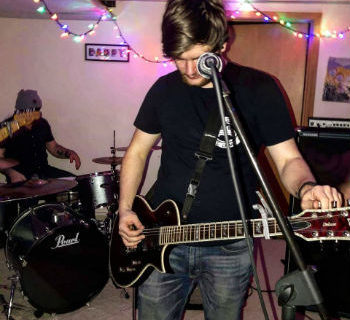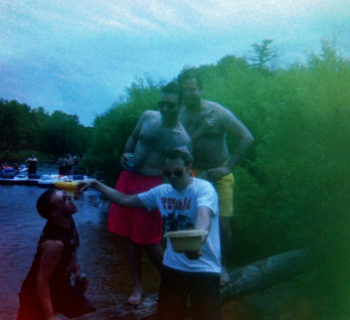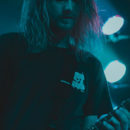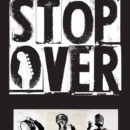Coheed and Cambria – The Color Before the Sun
“Where’s my life saver when I’m screaming danger?”
The Color Before the Sun is not a transcendent album. At times, even ‘good’ may be pushing it, but it is the one album I can honestly say I needed to listen to this year.
That’ll make sense soon.
Coheed and Cambria are the brainchild of Claudio Sanchez, a man whose hair is almost as epic as his music. To this point, they have been completely defined by their sprawling, Joycean sci-fi fantasy saga The Amory Wars, and its influence has weighed heavily on all their albums to date. The Color Before the Sun is their first non-concept album, but it is also the best concept album they’ve recorded to date.
I swear that will make sense soon.
This album is not a high-concept sci-fi adventure like their previous albums, but rather an introspective meditation on identity crisis. The narrator, whom I would not be surprised to find out was Sanchez himself, is going through a motherfucker of an existential crisis and seems to be struggling with who he is on all fronts. The proceedings kick off with stadium rocker “Island,” a pure slice of prog goodness that would be at home on a ‘70s Rush record. It immediately establishes the themes of loss and crisis with the opening lyrics, “I’m just a big dud/foolish from the start/I make a wrong move/and the world just falls apart.” Uh-oh. The lyrical theme of “Getting Off The Island” immediately establishes a protagonist, lost and isolated and in the context of this band’s career. I get that.
I can’t help but feel that the confusion, the lyrical ennui, and the bizarre arrangement of tracks are completely intentional.
Sanchez and Co. have been defined by a central story and a very specific musical style, and they are now striking out into unknown territory. The first part of their story is over and they still want to record music, so what’s next? That’s a tough question for anyone writing a long-form narrative. This record explores that terror and masterfully deploys structure and flow to portray conceptual crisis and weight.
The first seven tracks of this record are difficult to listen to and emotionally confused; the ballads are too close together and the hard rockers are too far apart; you don’t always know where you are in the album and time seems to blend. The music feels like it’s being played in the wrong places at times and after a few tracks this sense of confusion and frustration peaks.
Then the lead single comes on and it all makes sense.
“You Got Spirit, Kid” is my favorite track aside from “Island,” and while it’s fantastic as a single, its context in the album is so well placed that I can’t help but feel that the confusion, the lyrical ennui, and the bizarre arrangement of tracks are completely intentional. The album is inducing an existential crisis in the arrangement of its tracks. When we get to “You Got Spirit, Kid”––perhaps the ultimate ode to doing what you need to––there is a sense that the narrator, who to this point has been lost and confused, has had a major epiphany. The music supports this as the preceding track, “Young Love,” meanders but suddenly gains focus as it transitions to “You Got Spirit, Kid.” Then, the album veers away from what we’ve so far experienced, and gives us this hard rocker about embracing the fall. We have an all-hope-is-lost moment, followed by an affirmation that giving a fuck is overrated because “no one gives a fuck who you are.”
This is followed by the most overtly progressive track “The Audience,” itself a climax, and then the denouement “Peace to the Mountain.” If you listen very, very closely, you can hear the chorus of the first track, “Island,” in the distance of the mix as the narrator ascends the mountain: the crisis of self has been resolved. The narrator has found purpose and peace of mind. The album tells a story of crisis and by the end of the musical three-act structure, the story resolves. The music and its sense of directionless serves a functional purpose. Sanchez has accepted who he is as a person outside his body of work.
That is a beautiful way to do a concept album. And I loved it not only for the way Coheed and Cambria handle it, but because that’s where I myself have been for weeks now––lost, confused, and profoundly anxious about my future. To hear “embrace the fall” after that muddled sense of crisis and then to find satisfaction and peace at the end––that’s powerful.
As I have noted, the greatest strength of this record is also its greatest weakness: if you’re not actively paying attention, it just sounds muddled and confused with a few good tracks. Most people don’t listen to albums as albums, and so a lot of these tracks could be perceived as filler. I have to touch on a major point with which a lot of people have taken issue. This album is a few months old, and as a fanboy I’ve been tracking the critical assessment. The most common critique of The Color Before the Sun has been its lack of ‘heaviness.’
I feel this reading lacks substance, or at least perspective. This record is emotionally heavy, and it has plenty of heavy moments. I include this rebuttal because Coheed and Cambria are largely defined by their heaviness and their conceptual approach to music. I find this record brutal in the way that The Antlers’ album Hospice is brutal; it is way more emotionally intense and scarring if you actually give it a fair shake. And as always for this group, the music is well thought-out, complex, and emotionally resonant.
The Color Before the Sun is a record that rewards patience, and I love those records, especially when they help me through my own emotional crises. And no one gives a fuck who I am anyway, so it’s all good.
Until I embrace the fall.
8,769 out of 10,000 Rawckus Kung Fu Throwing Stars
Tell us what you think about this album.
Cover Photo By Dustin Winter

